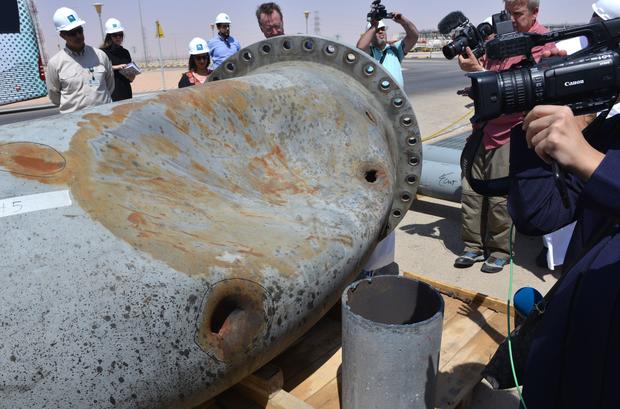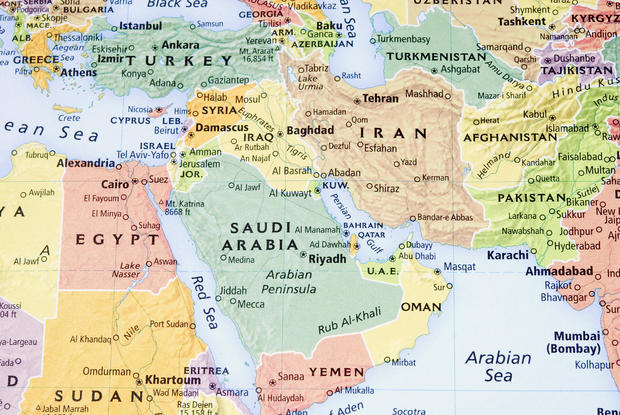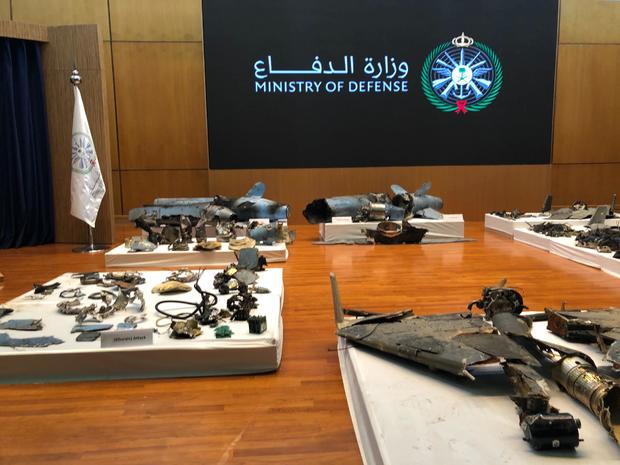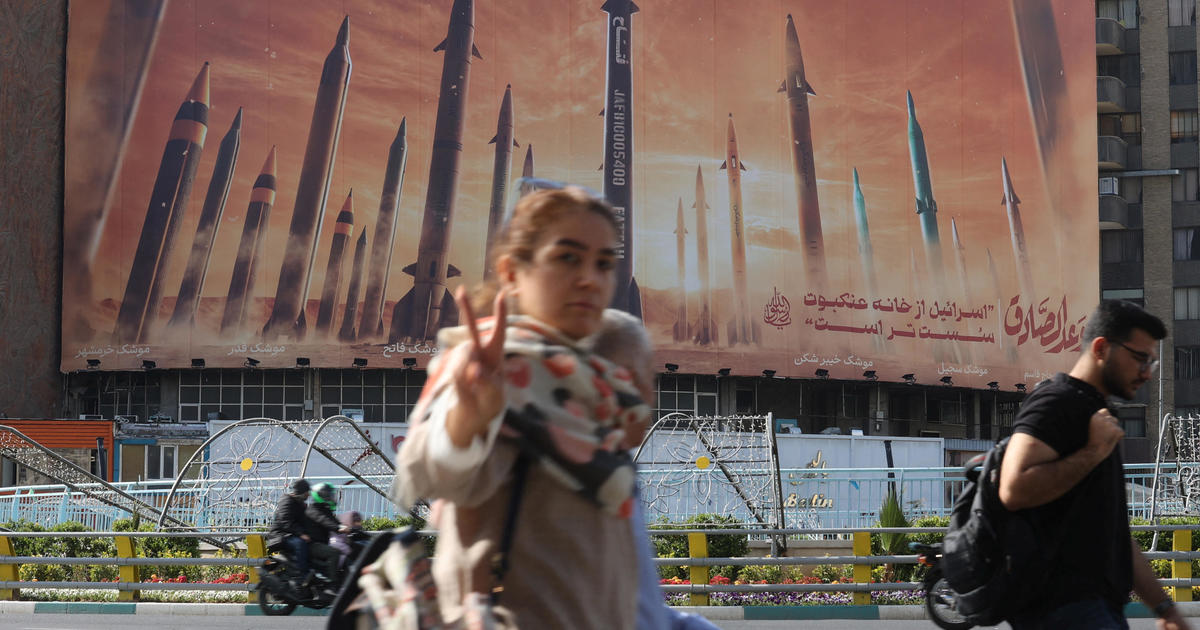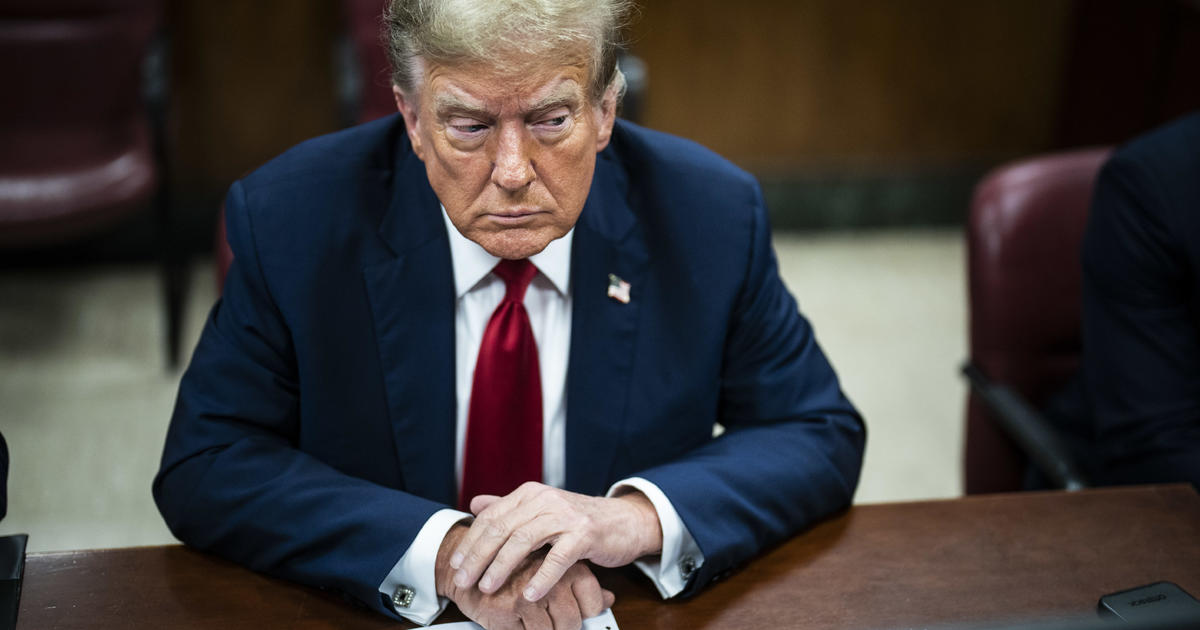Trump to hear military options on Iran as Saudis show oil site damage
Khurais, Saudi Arabia — President Trump was to be presented Friday with military options for potential retaliatory action against Iran for its alleged role in the attack on Saudi oil facilities over the weekend, U.S. officials have told CBS News.
When he initially discussed options to respond to the drone and missile attack on two Saudi oil sites earlier this week, Mr. Trump insisted Saudi Arabia would have to contribute to any retaliatory strike. He was to meet again on Friday afternoon with his national security team to discuss the options.
CBS News correspondent Ian Lee was among a group of journalists given an up-close look on Friday at the damage done by the attack in Saudi Arabia. The kingdom wanted to show news cameras charred infrastructure and huge metal pipes with large holes through their thick walls at an Aramco crude processing facility in Khurais.
They said the destruction is evidence to bolster their case that Iran was the perpetrator of the attack. Iran insists it was not involved, and Houthi rebels in Yemen, on Saudi Arabia's southern border, have claimed the strike.
But echoing information from U.S. government sources, Saudi officials have said that in the early morning hours of Saturday, four cruise missiles came screaming in from the north — the direction of Iran — and hit the facility in Khurais and one other Aramaco site in the region.
U.S. officials have told CBS News those cruise missiles and drones were launched from a base in southwest Iran, and they even claim American satellite imagery shows Iranian forces readying the weapons for the attack.
CBS News senior national security correspondent David Martin reported this week that neither the Saudis nor U.S. intelligence agencies expected Iran to launch a direct attack on Saudi Arabia, so they were unprepared to counter a strike from the north. Saudi missile defenses were, according to Martin's sources, all oriented to the south toward Yemen, where the kingdom has led a devastating war against the Iranian backed Houthis.
The Houthis have carried out attacks on Saudi soil using drones and missiles prior to this weekend, but nothing near as sophisticated or damaging as the Saturday strike on the Aramco facilities.
Martin reported Friday that the U.S. had positioned the USS Nitze, a destroyer armed with surface to air missiles, off the northeast coast of Saudi Arabia, in an effort to plug the gap in Saudi air defenses that the U.S. and Saudi Arabia say Iran exploited last weekend.
CBS News' Lee said that while the Trump administration has said it is looking at all options, short of going to war with Iran, it is also building an international coalition against Iran to further isolate the Islamic Republic. Mr. Trump also hit Iran with more sanctions this week in response to the attack on Saudi Arabia.
A team of United Nations investigators arrived this week to examine the damage. They also looked at the remnants of drones and missiles purportedly used in the attack, which were put on display by the Saudi Ministry of Defense on Thursday. Part of the U.N. team's task is to independently verify the evidence offered up by the kingdom.
While Iran continues to aggressively deny responsibility for the attack, next week top Iranian officials will be in New York for the UN General Assembly. President Hassan Rouhani and Foreign Minister Javad Zarif have both now been issued with visas by the U.S. government to attend. They'll likely face some tough questions.
